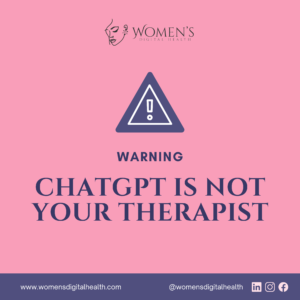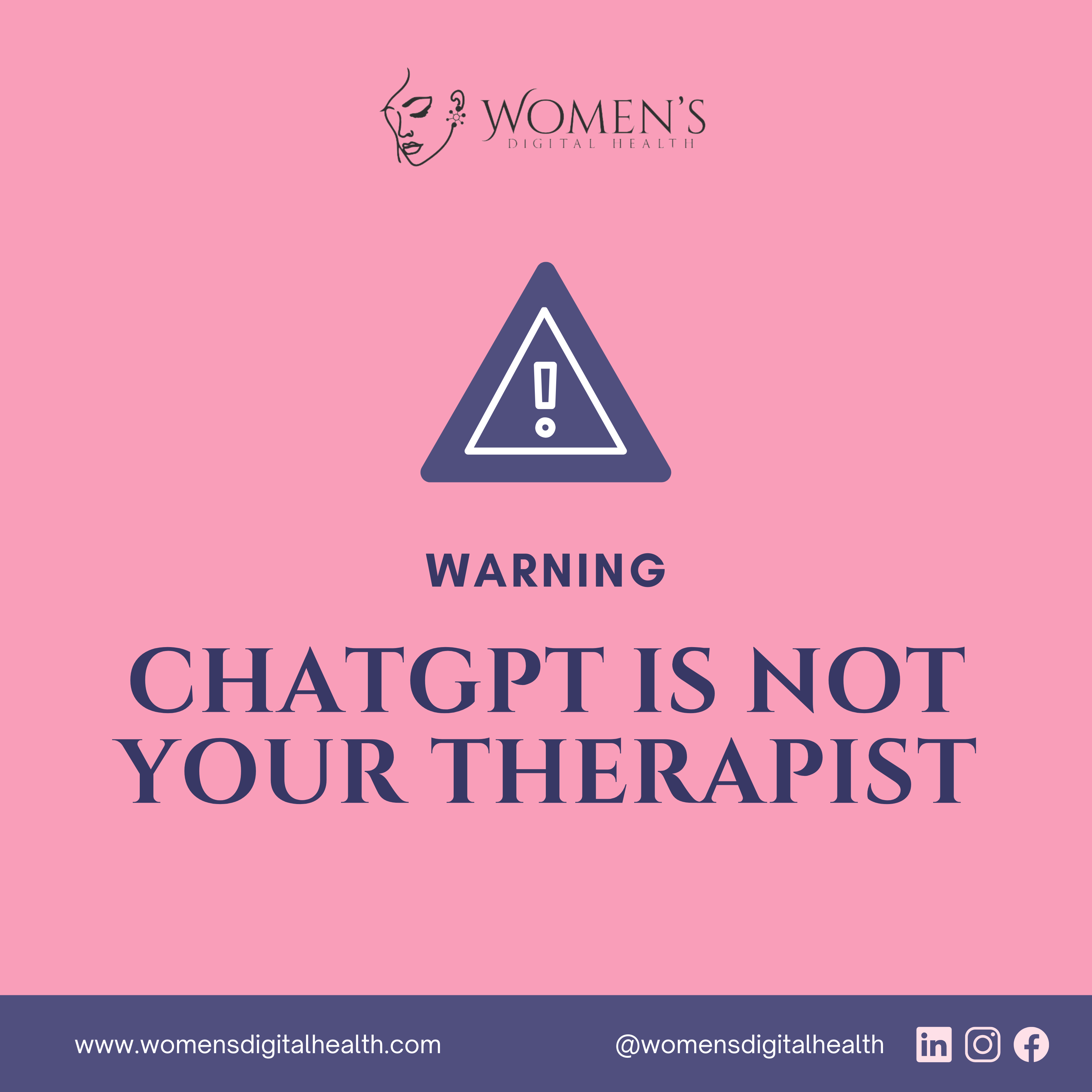ChaptGPT is great for a lot of things. It certainly comes in handy for drafting an email, pulling information about a given topic or generating ideas for social media posts. 
What’s a terrible use case for ChatGPT? Providing therapy for mental health issues.
Using ChatGPT or any generative AI tool to diagnose or get advice for a potential mental health issue is problematic and potentially harmful. Here are three reasons why:
- Data privacy concerns. Information entered into ChatGPT is not covered by HIPAA, meaning any personal health information (PHI) shared is at risk of being misused. User privacy and responsible data use are critical components to any digital mental health tool, and ChatGPT does not offer that protection.
- Risk of misinformation. ChatGPT is a generative tool designed to produce dialogue. It can provide information around mental health topics, but is not trained nor designed for diagnostic or treatment purposes. ChatGPT may overlook nuances that inform a person’s mental state or provide feedback that does match their mental health needs.
- Lack of complementary human input. Mental health issues can only be diagnosed by medical providers. While AI tools can aid in the treatment of certain disorders, pairing usage of these tools with the oversight of a medical professional is essential to achieving a positive outcome. Relying on ChatGPT or any other non-recommended digital mental health for treatment can exacerbate existing issues and lead to harmful behaviors.
Digital mental health tools are great options for supporting your mental health journey, but ChatGPT is not designed for that purpose. If you are struggling with mental health or looking for advice on how to manage a mental health disorder, work with your medical provider to identify safe, effective digital tools to use as part of your treatment plan.

